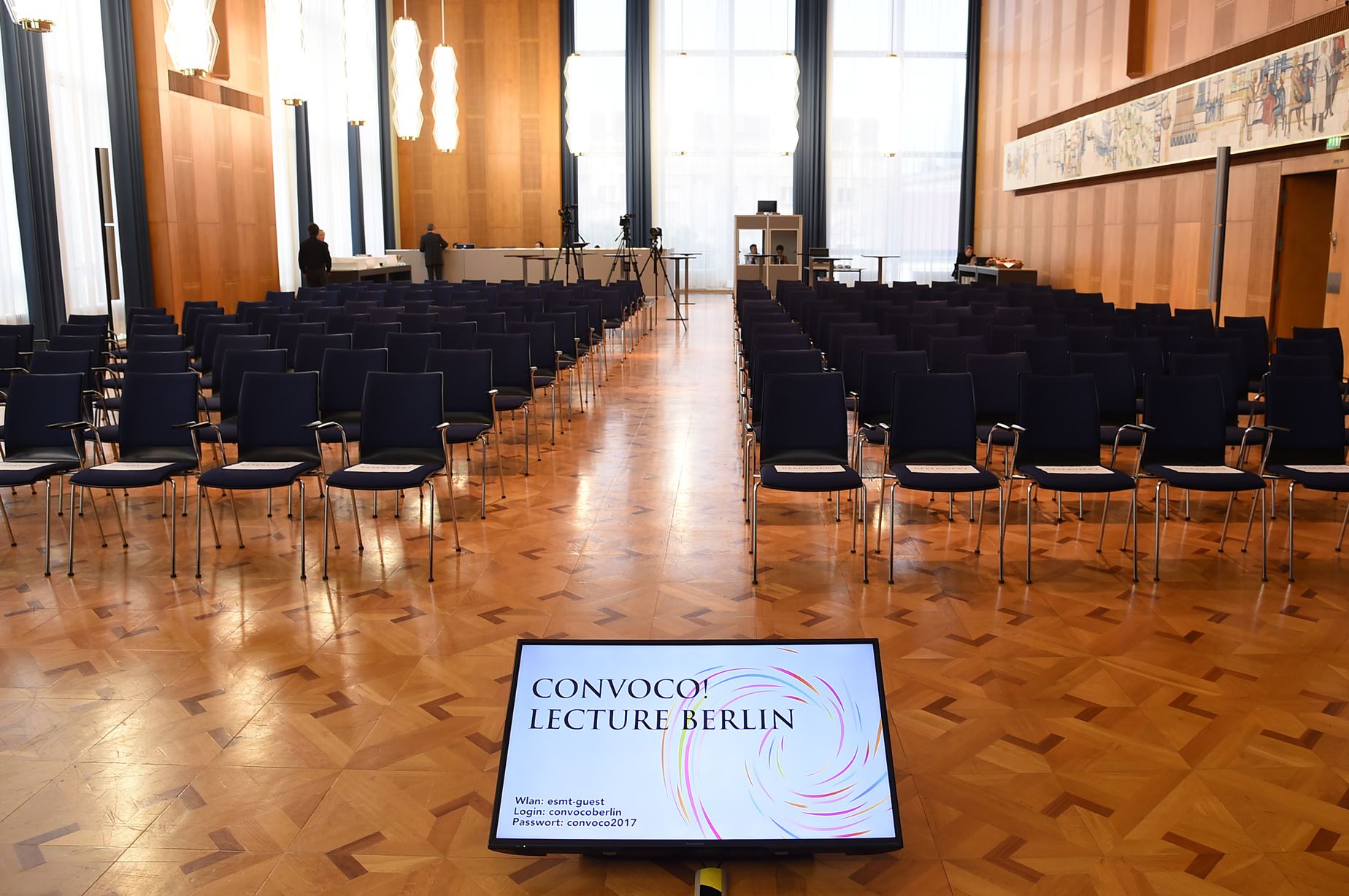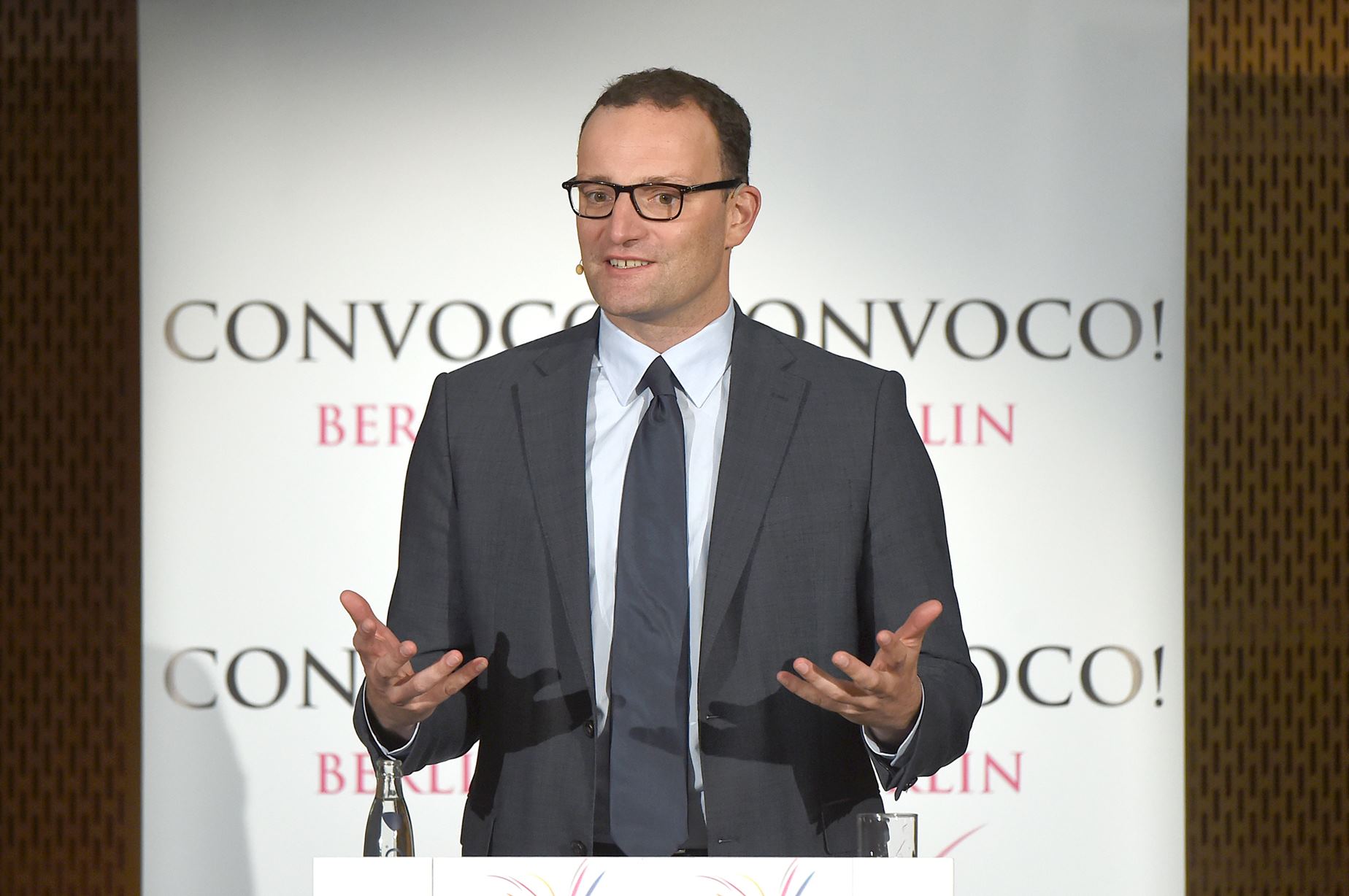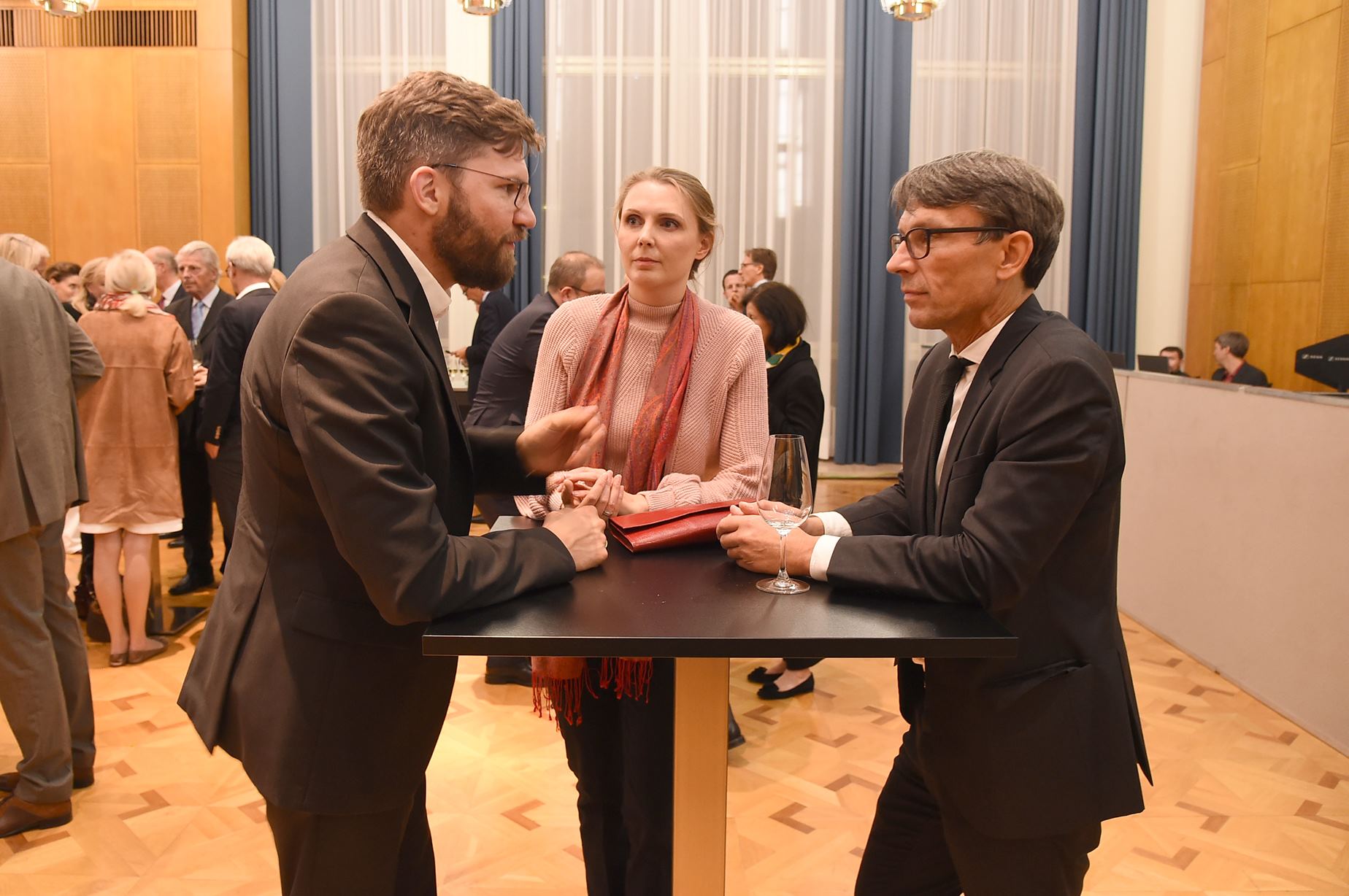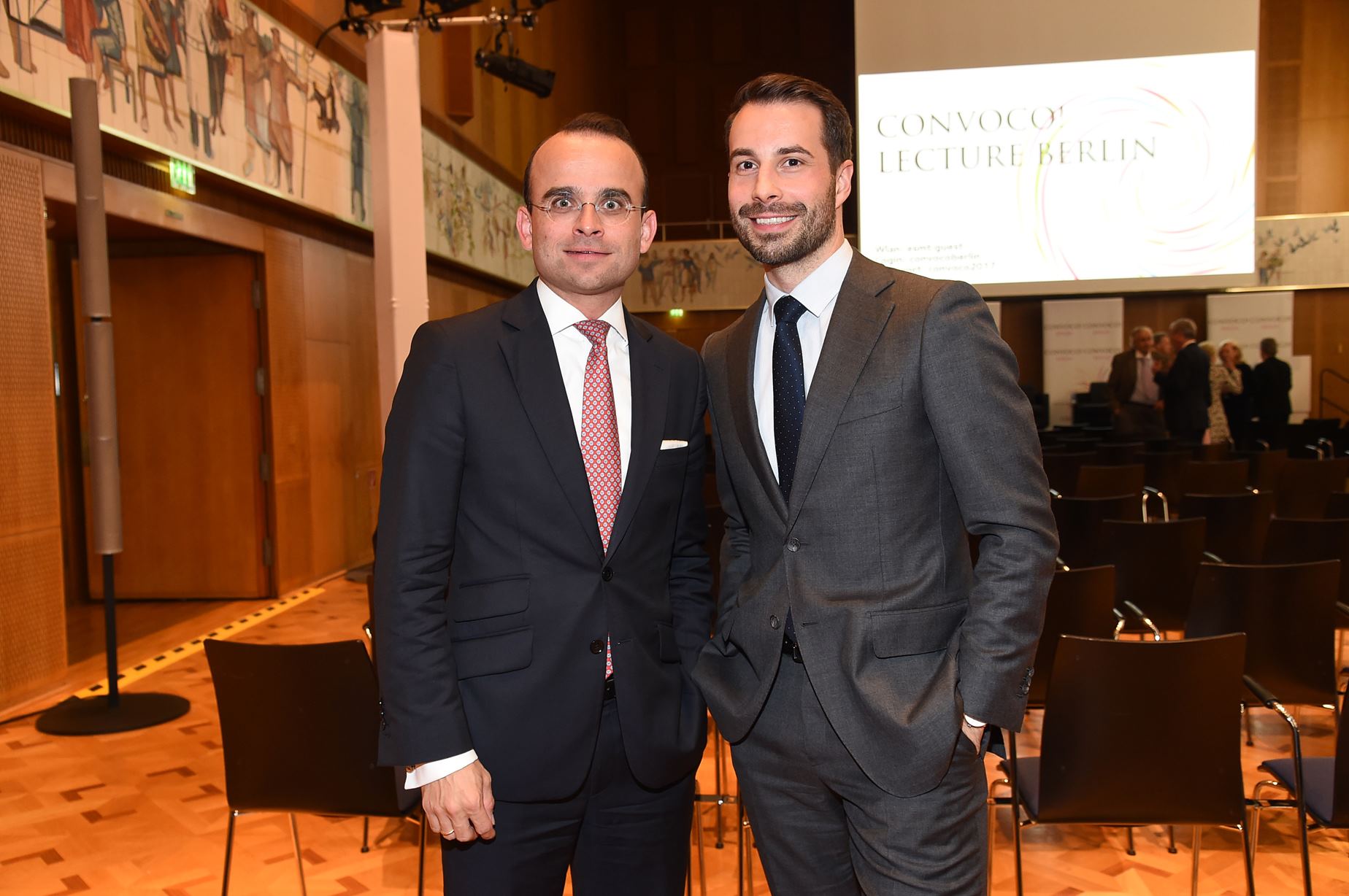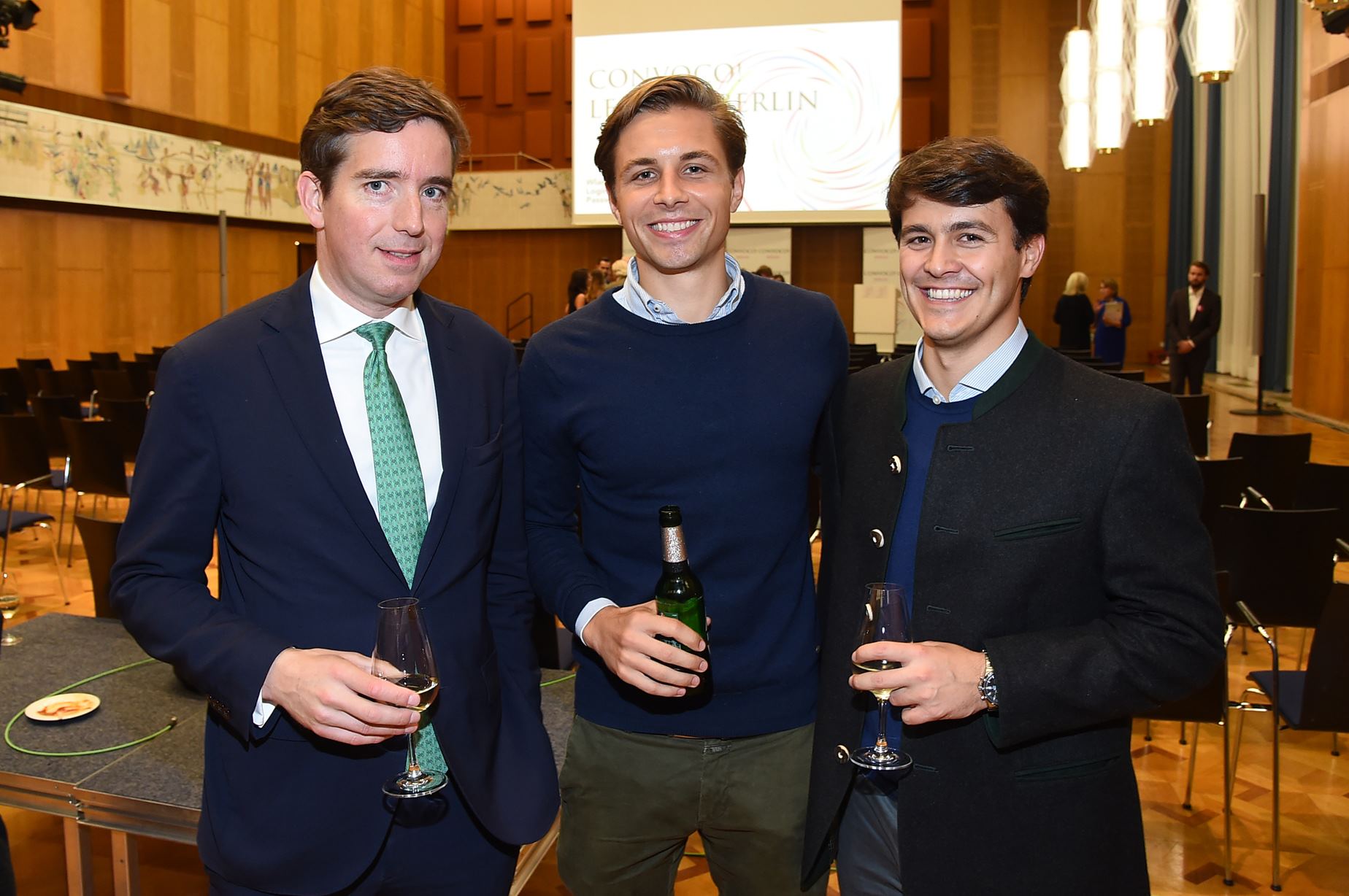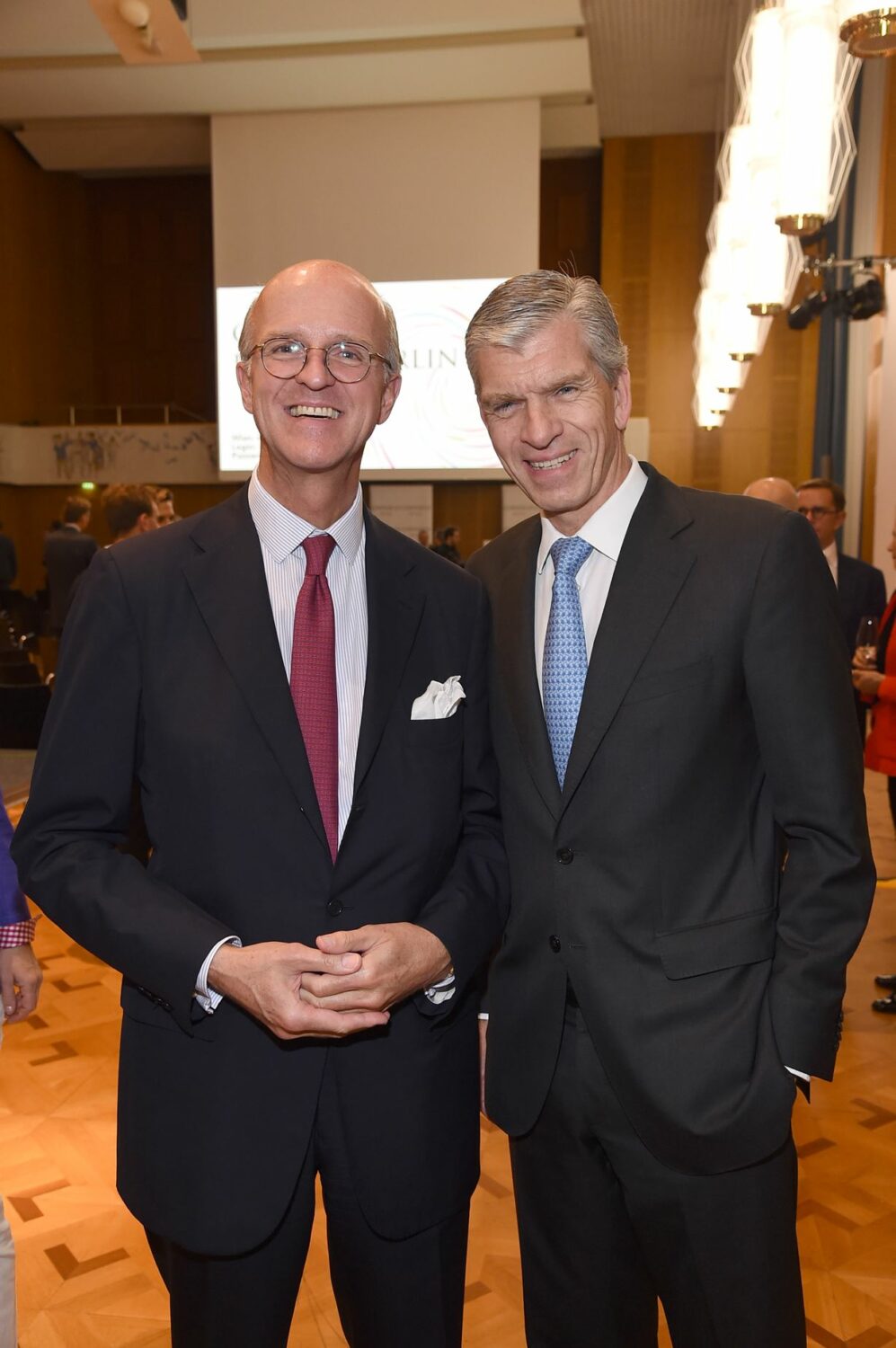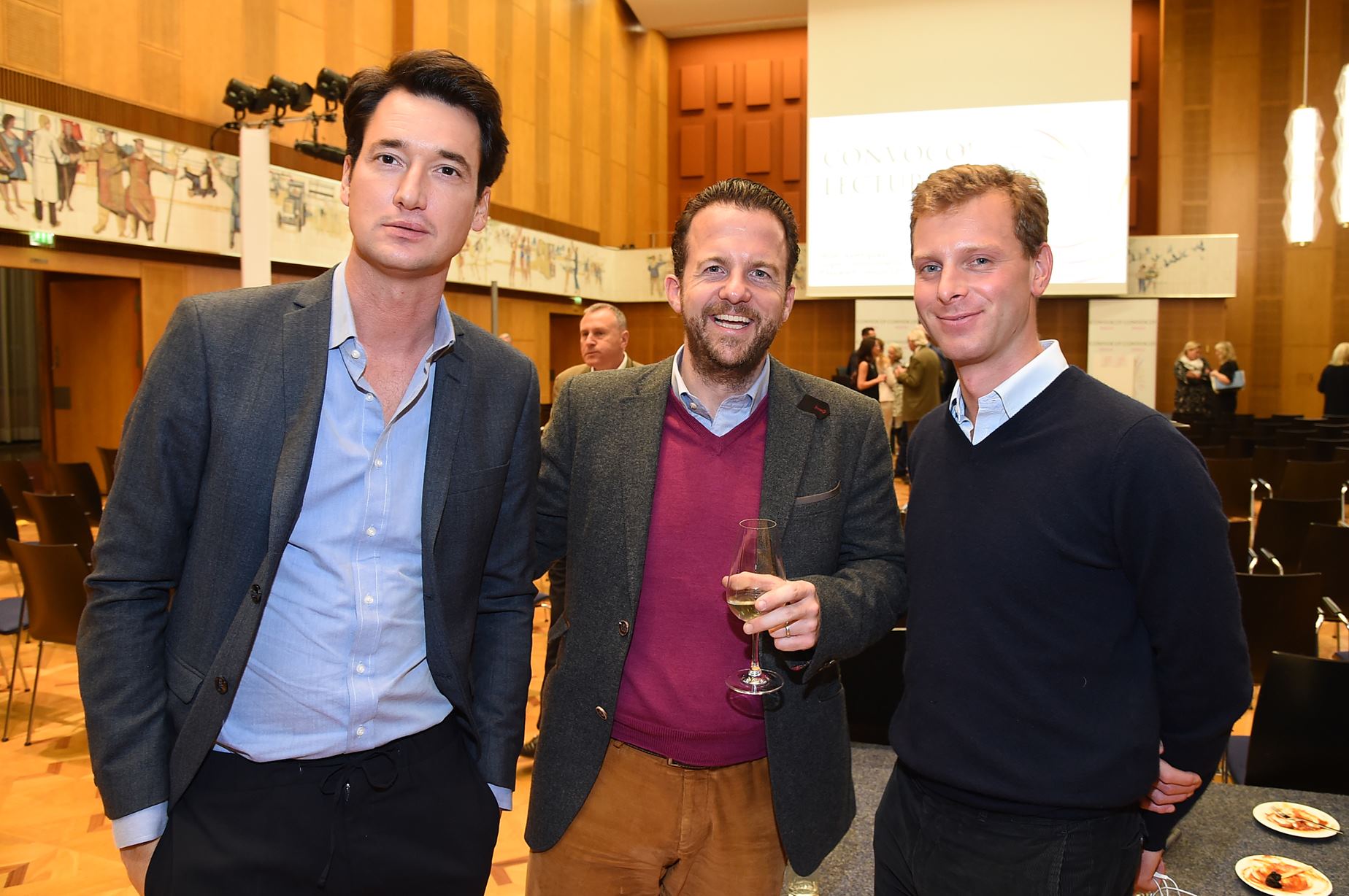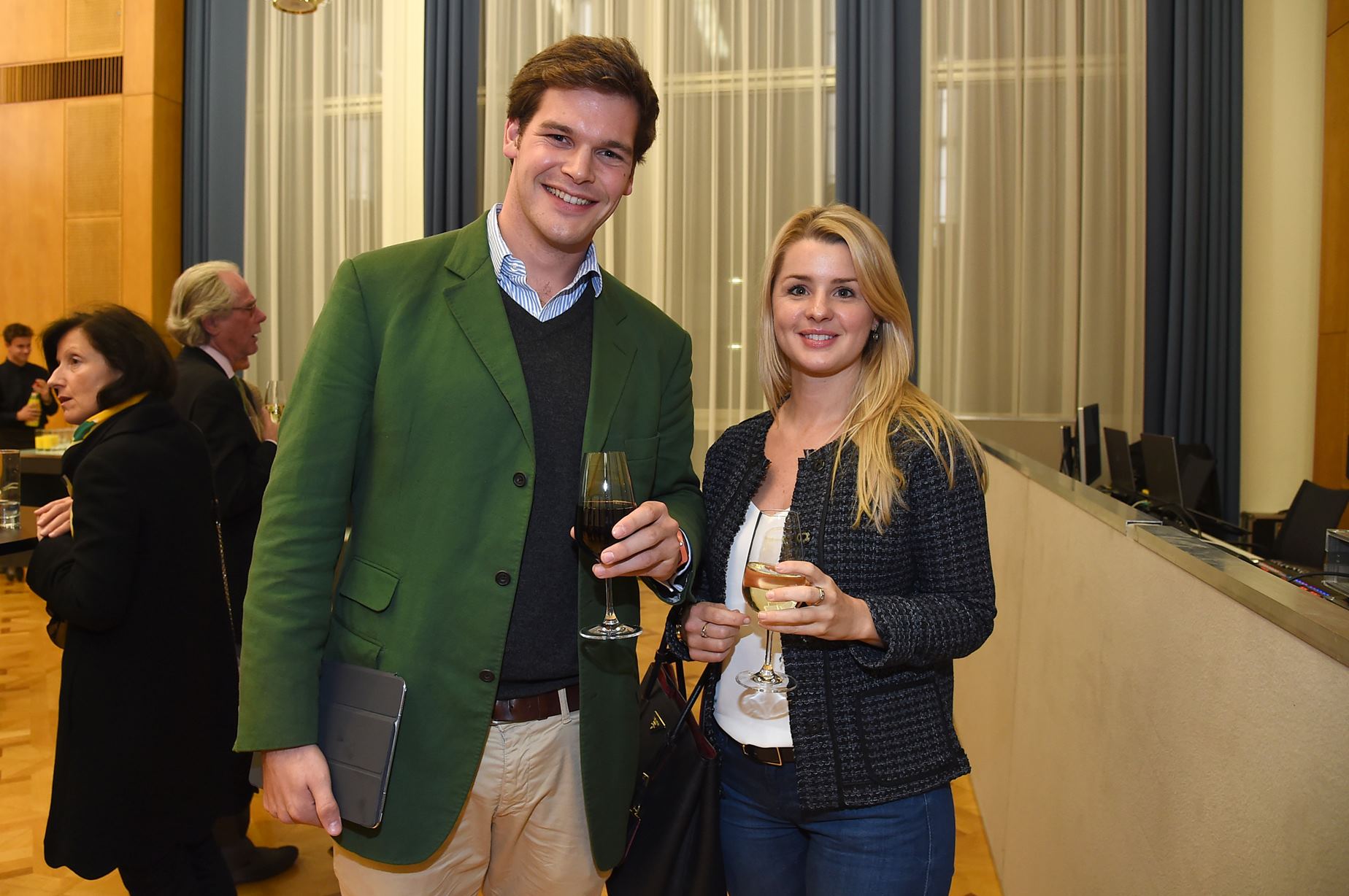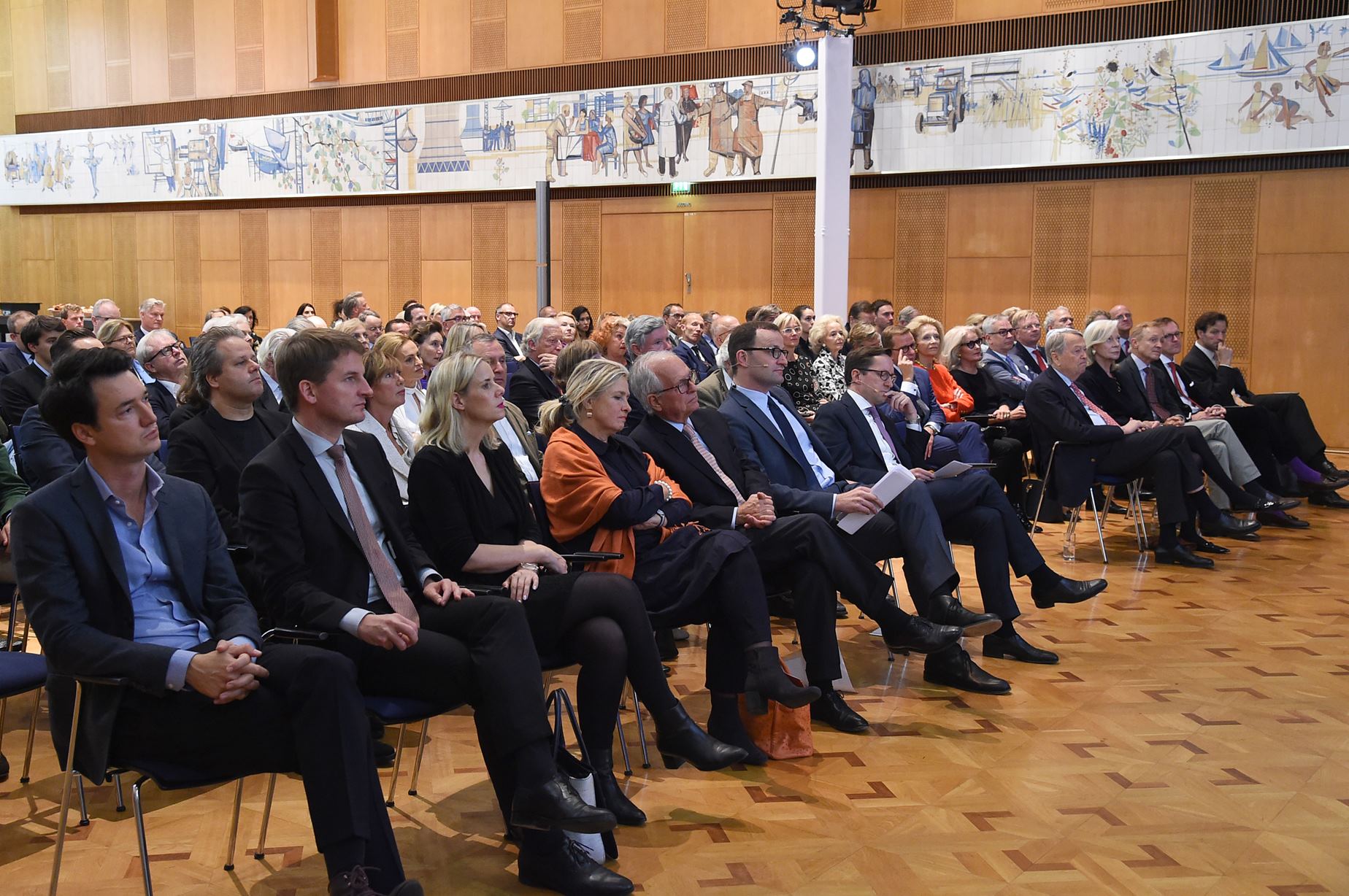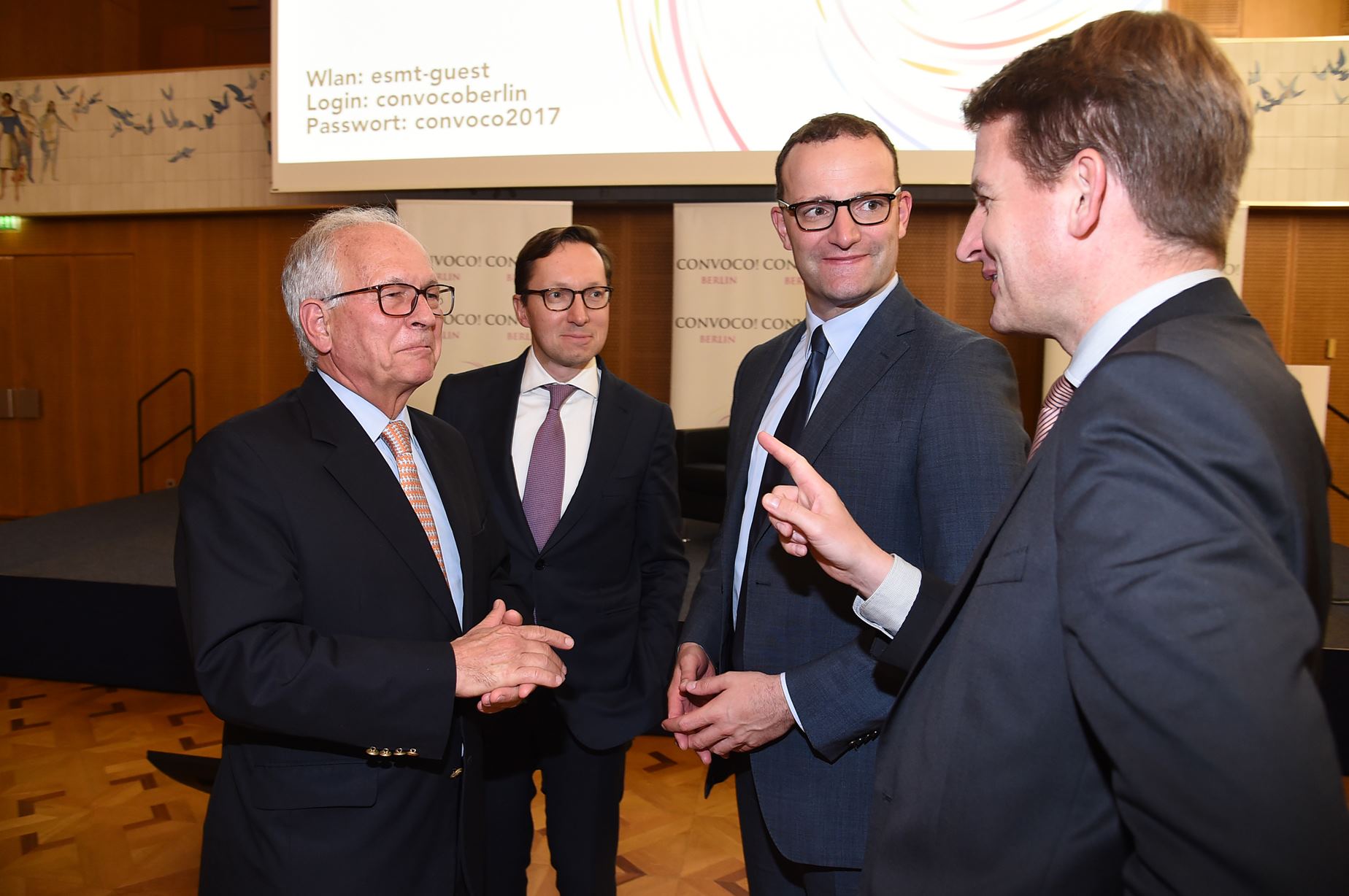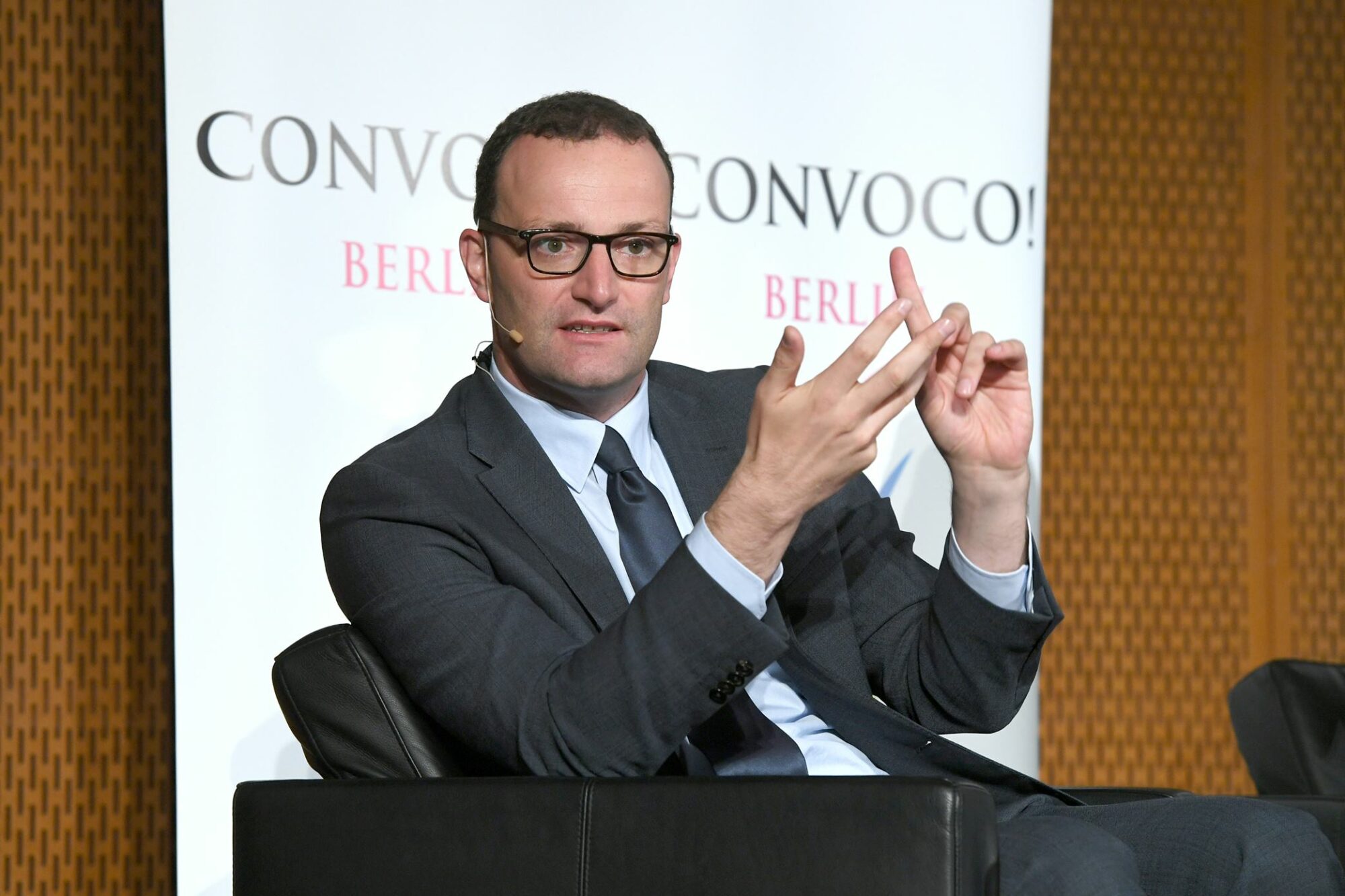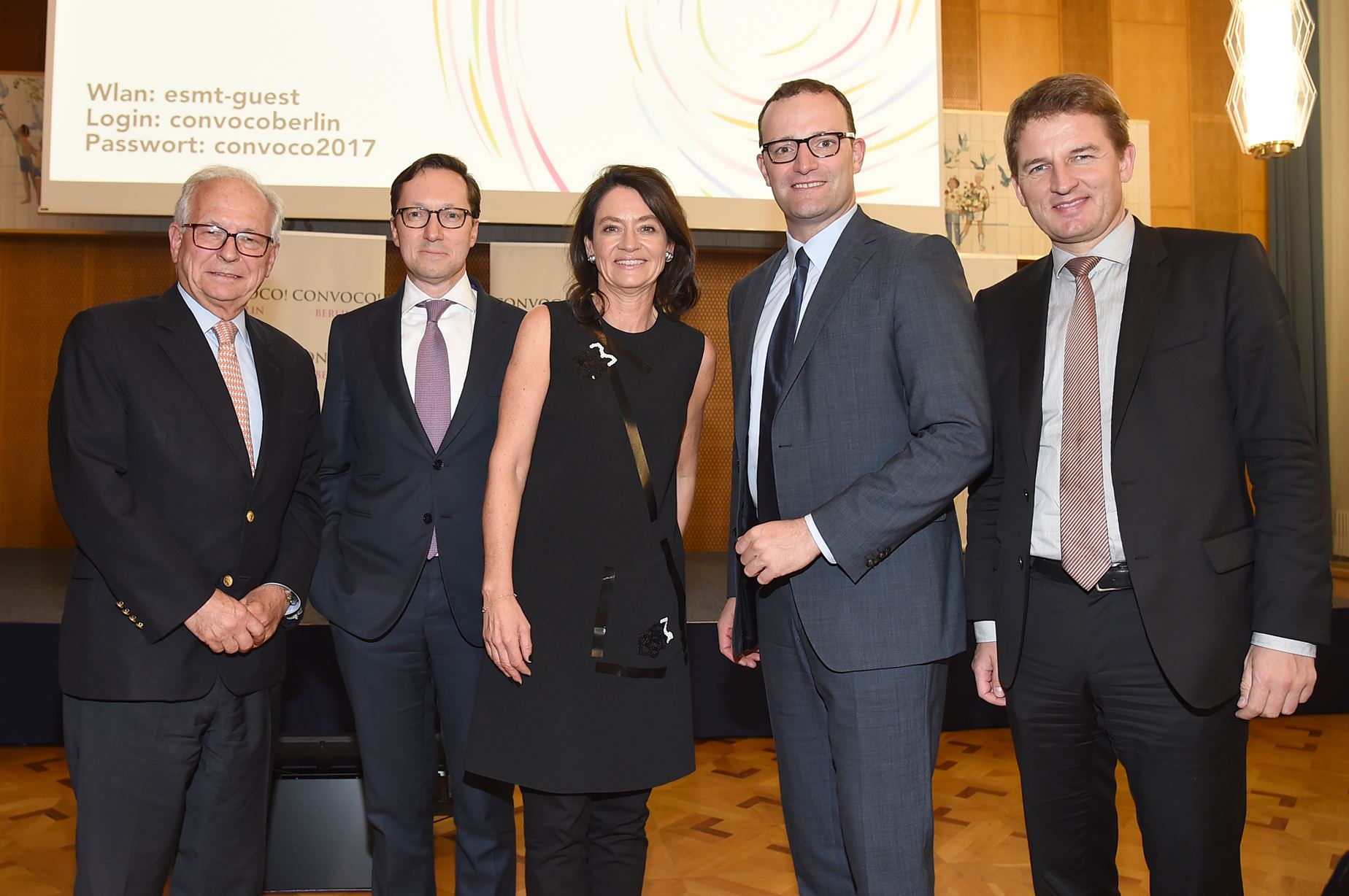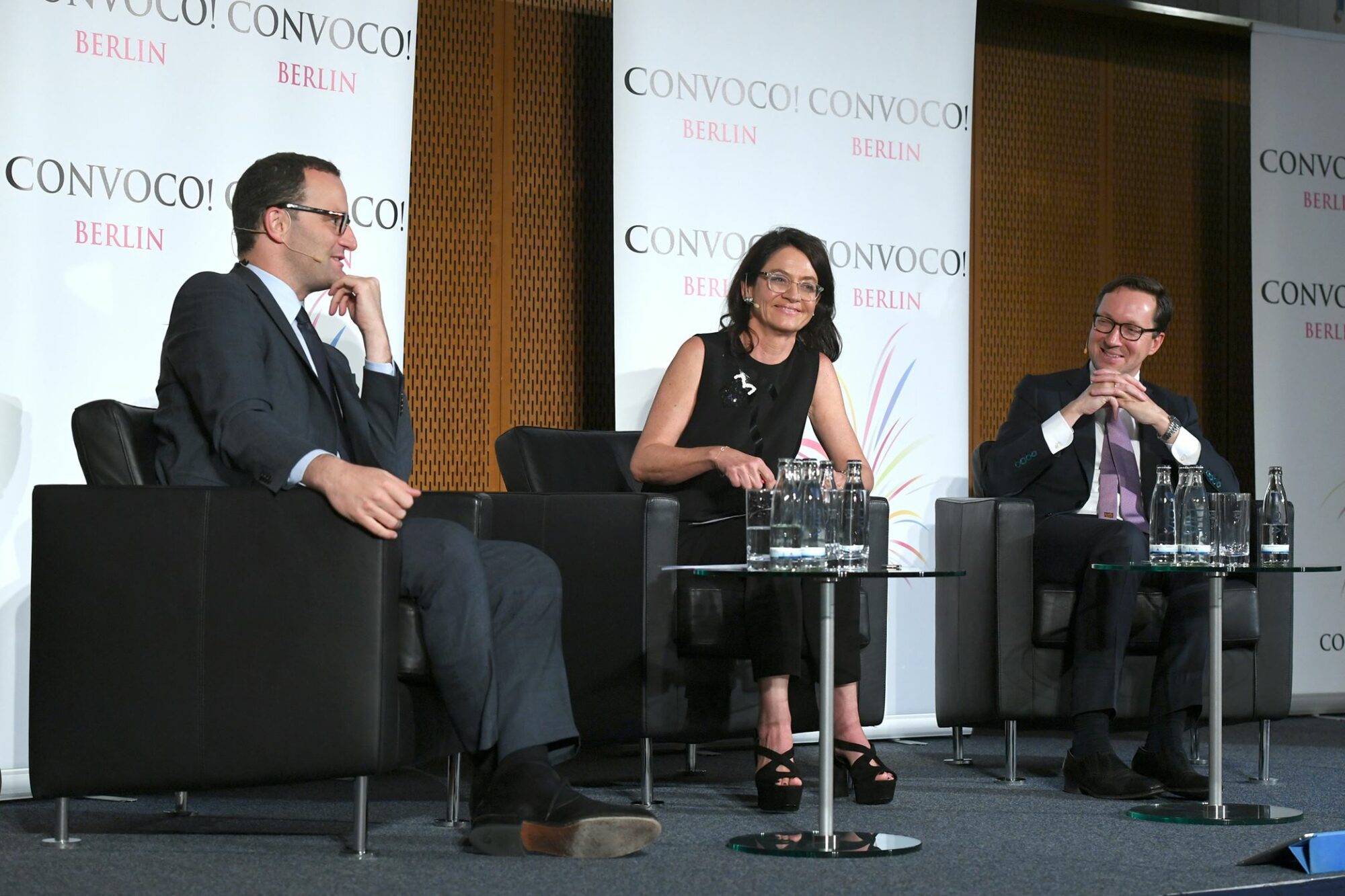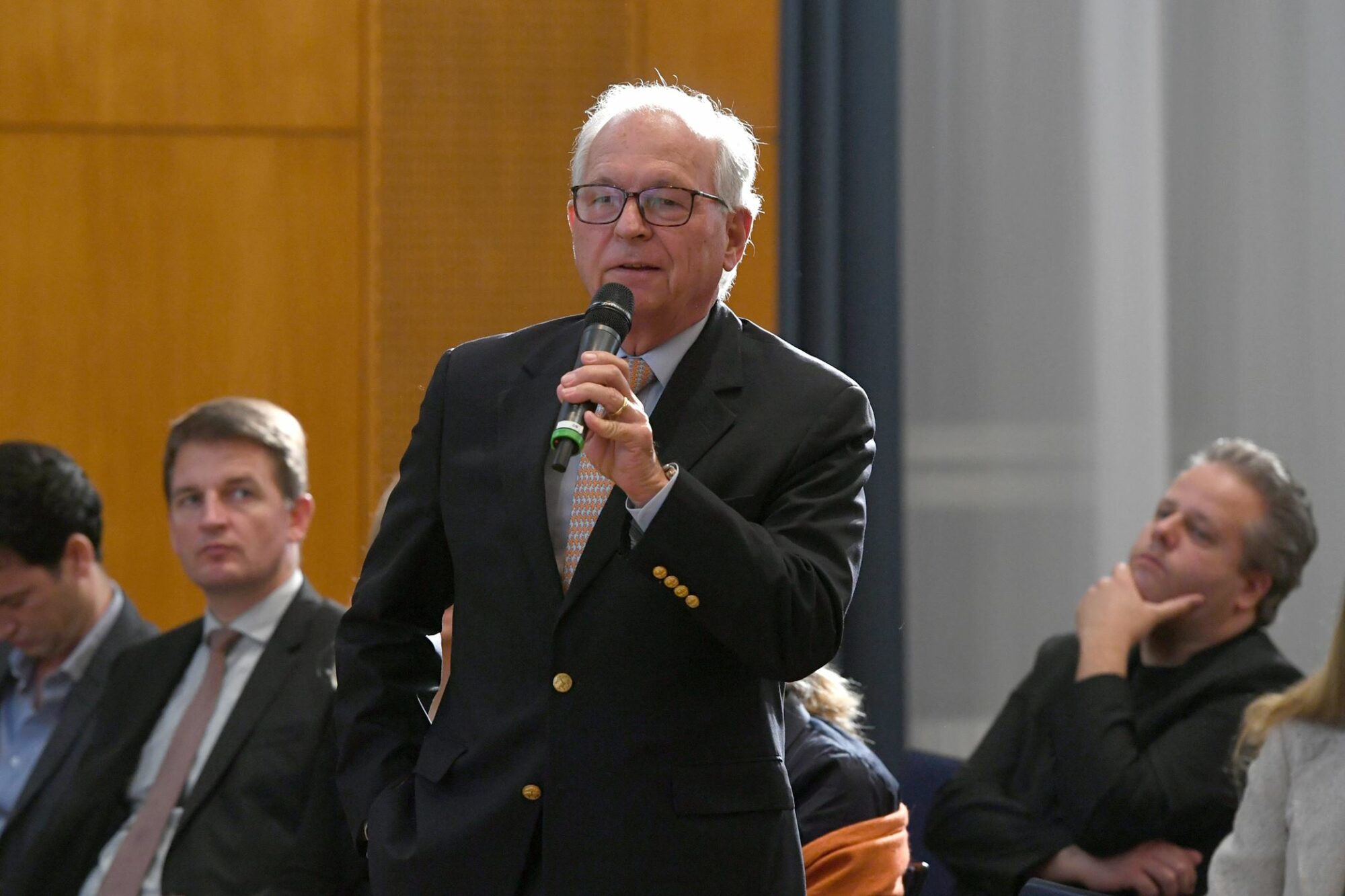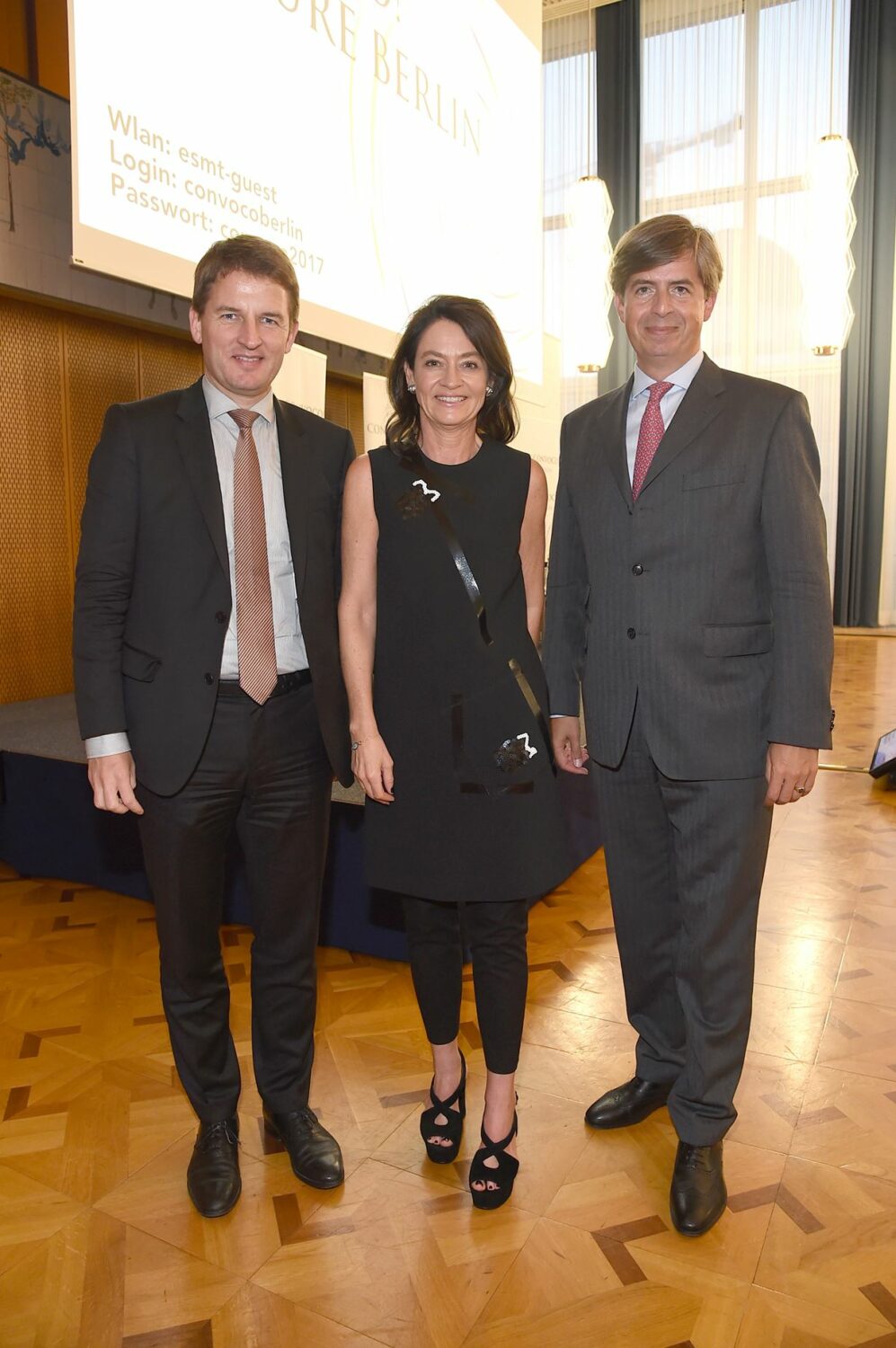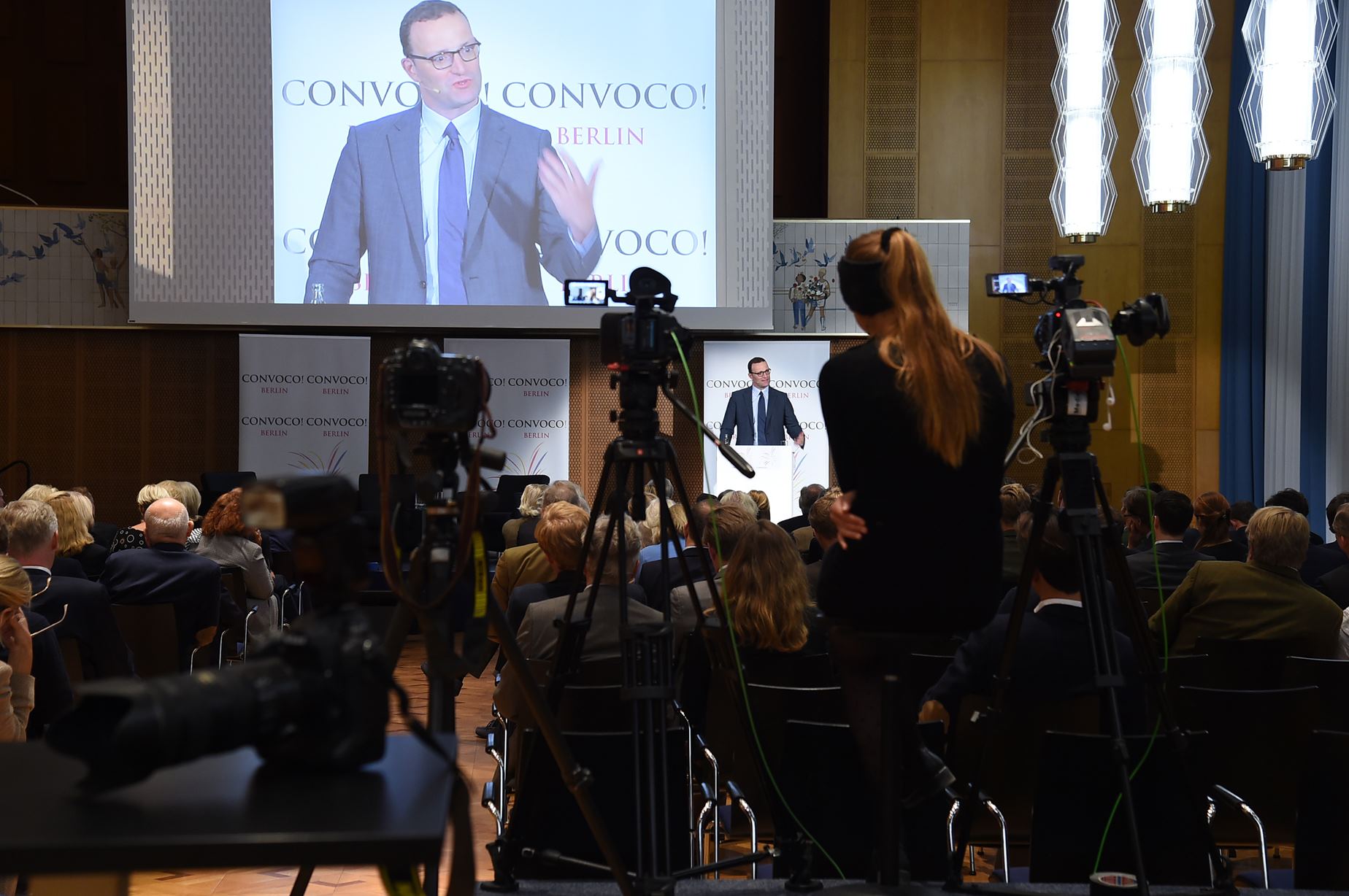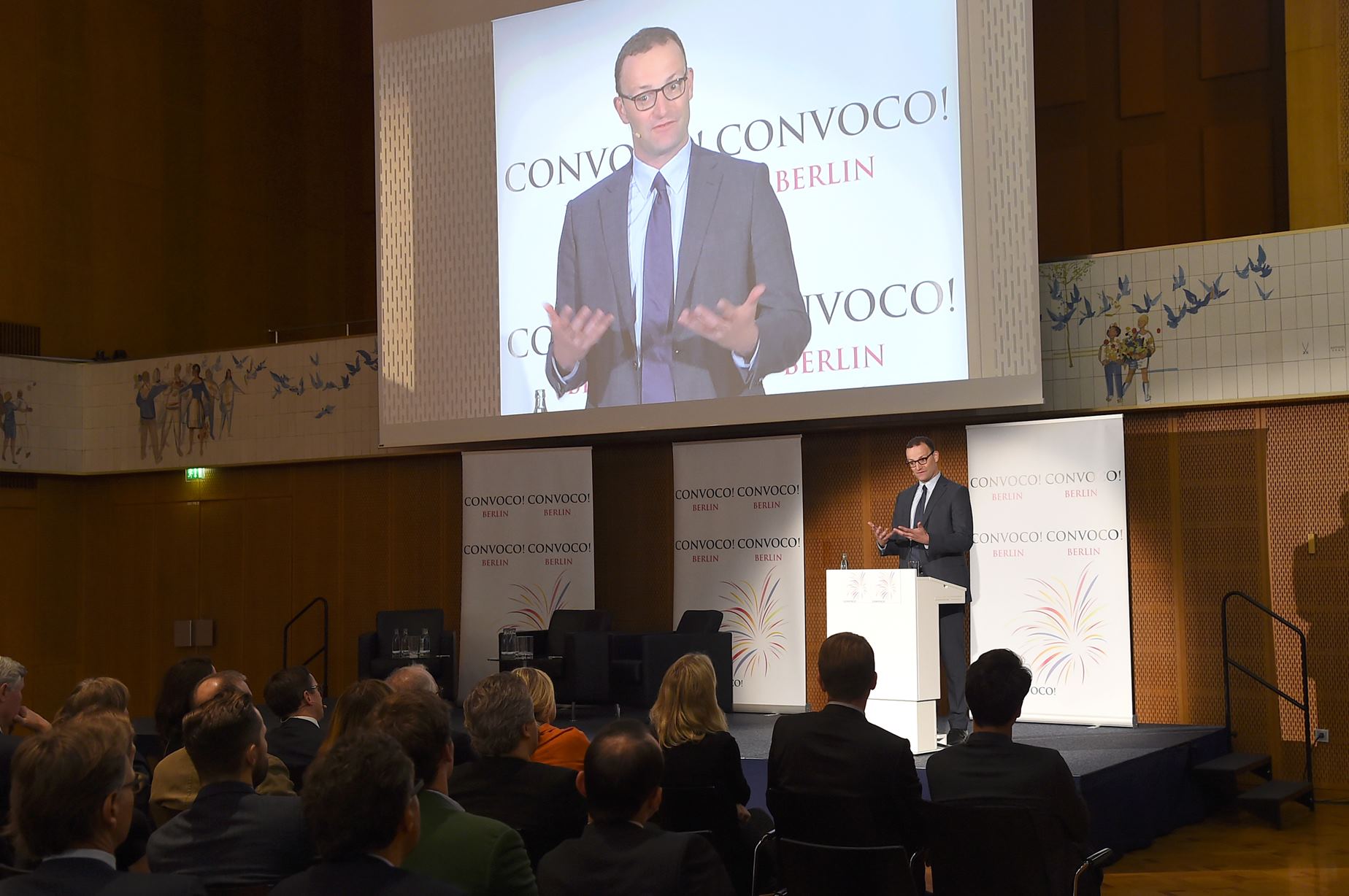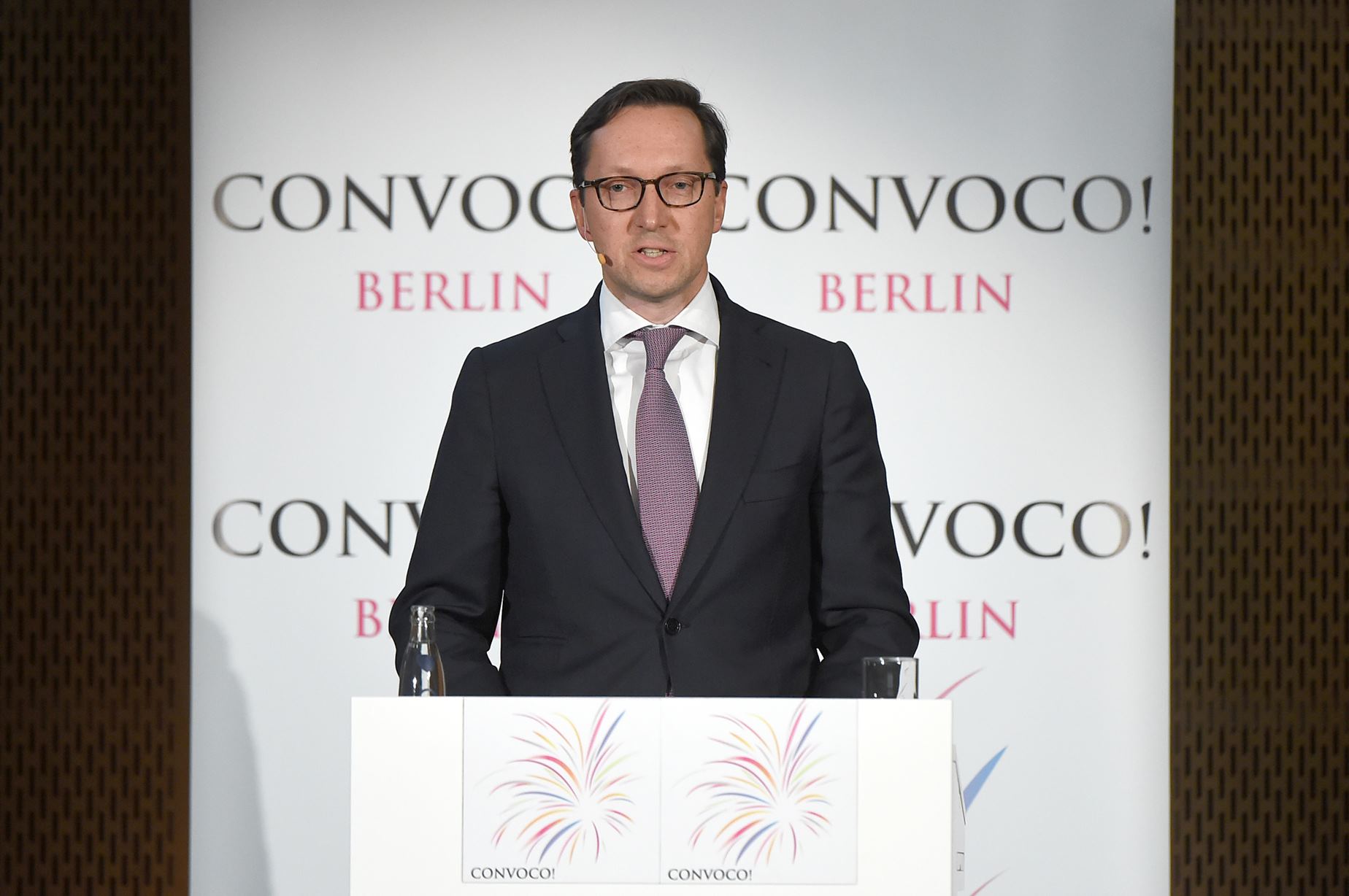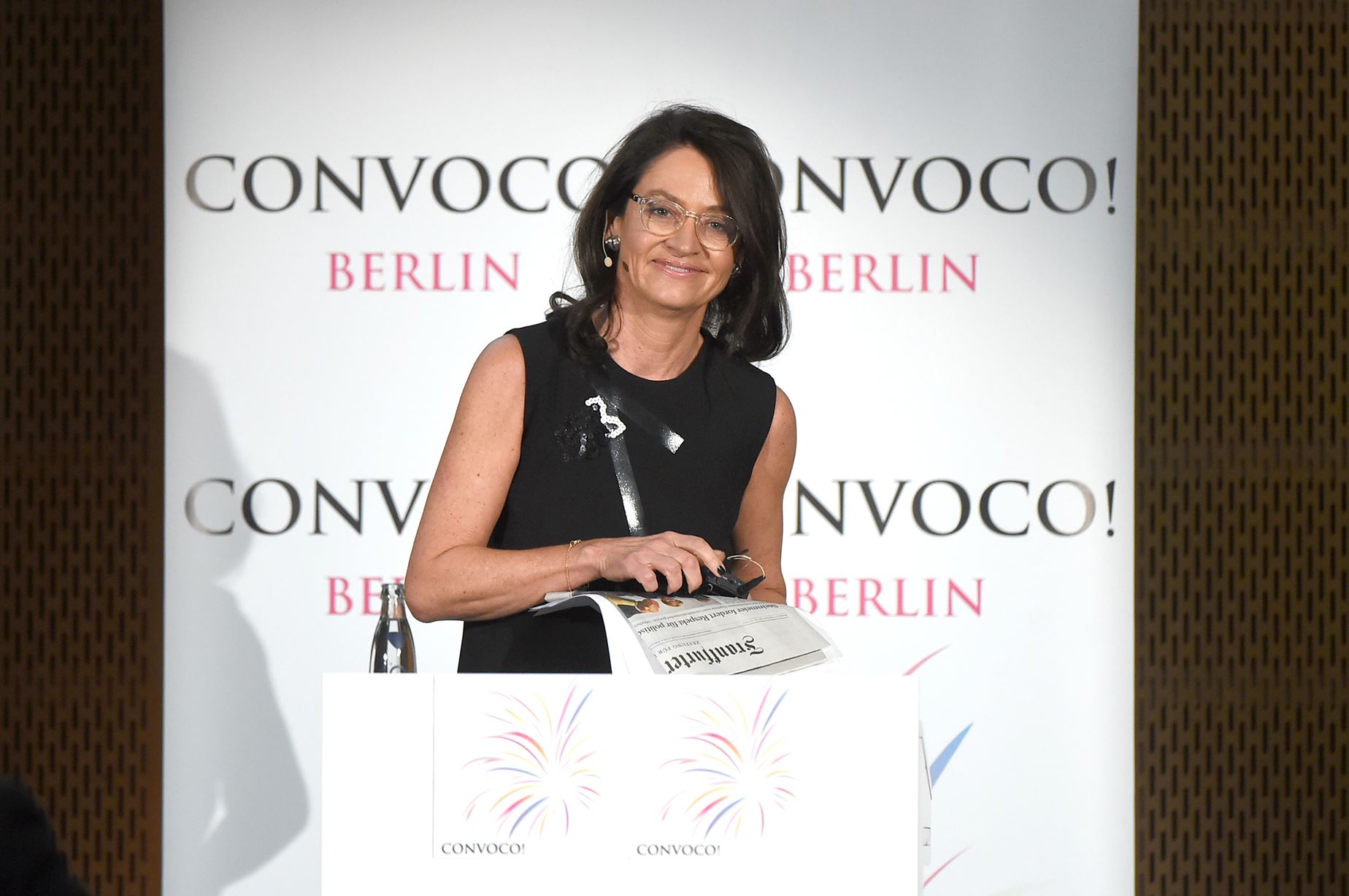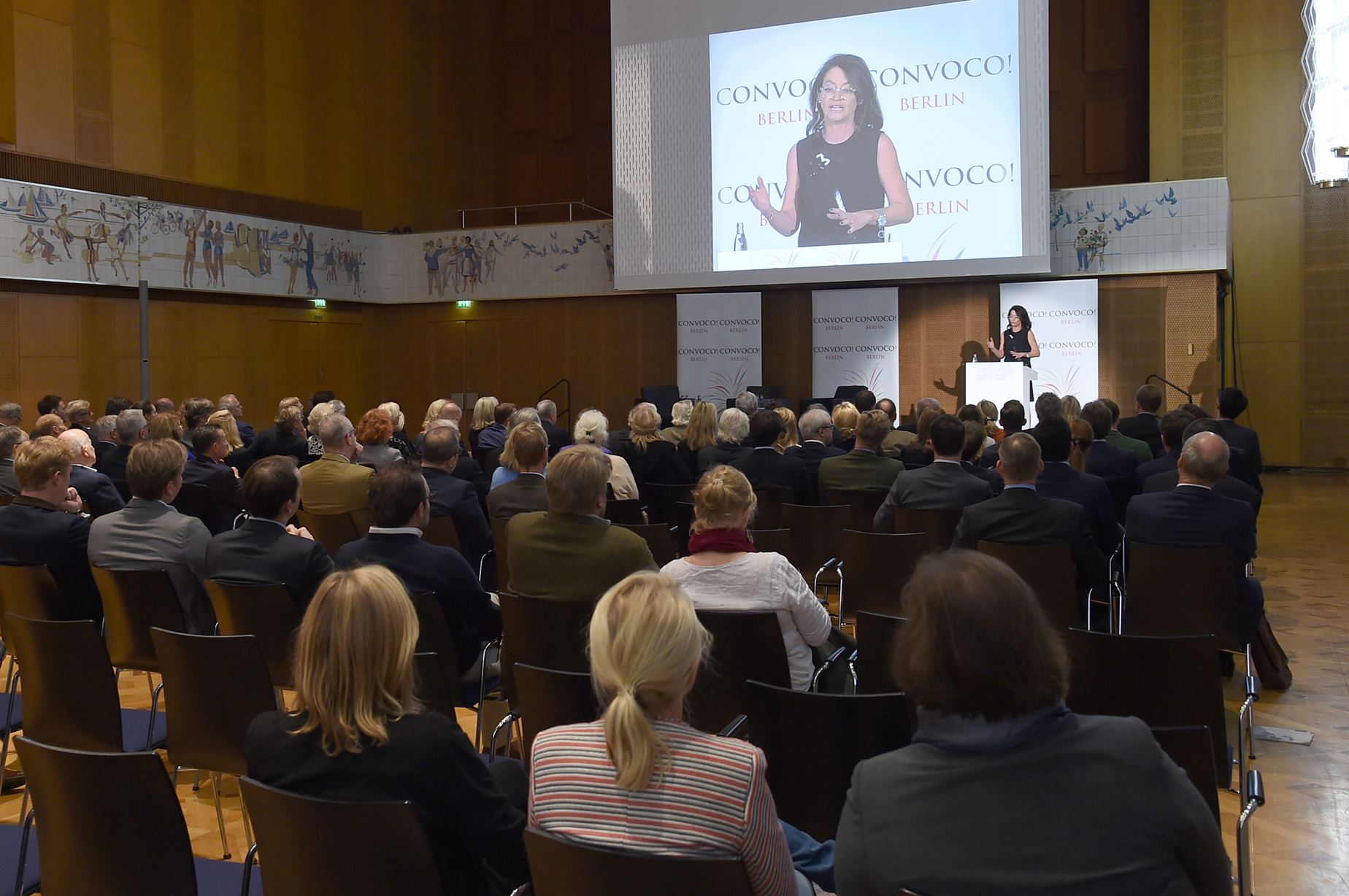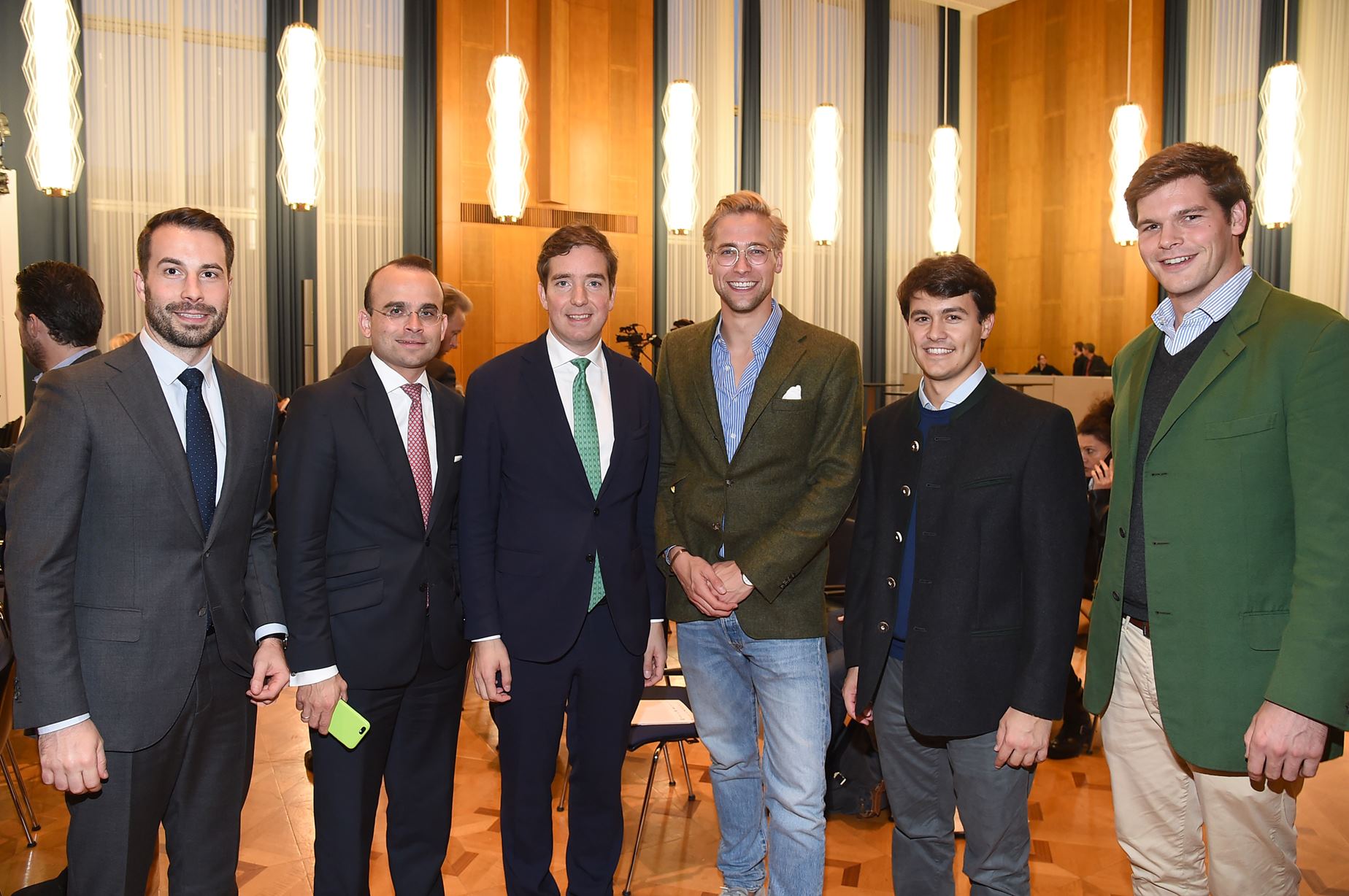CONVOCO! Lecture 09/2017: The Federal Budget 2030: How to Stay on the Road to Economic and Social Success
CONVOCO! Lecture 09/2017:
The Federal Budget 2030: How to Stay on the Road to Economic and Social Success
The Federal Budget 2030: How to Stay on the Road to Economic and Social Success
This was the title of the third Convoco event of 2017 within the framework of this year’s topic, “The Common Good in the 21st Century.” The lecture was held at the European School of Management and Technology (ESMT) in Berlin on September 27, 2017.
Dr. Corinne Flick gave an introductory speech and asked how the state and the common good relate to each other, and who defines the common good. The common good is determined by a combination of procedural definition, such as parliamentary resolutions, and substantive debate shaped by ethics, science, and public opinion. The German constitution as a normative structure is the basis for this.
Personality, subsidiarity, and solidarity—these three fundamental value principles define our market economy. Its principles of social justice and the rule of law are expressions of our interpretation of the common good. At its heart is the combination of market freedom and social equilibrium. In order to sufficiently emphasize the interests of future generations when it comes to determining the common good, the community’s financial resources have to be used sensibly. This is demonstrated best through the federal budget.
Dr. Wolfgang Fink, Co-CEO of Goldman Sachs Germany and Austria, introduced Jens Spahn MdB. Dr. Fink also spoke about major global challenges such as climate change, refugee crises, intergenerational equity, and digitalization. He asked how the community’s financial resources could be employed in such a way that our core values—the basis of our democratic society—could be safeguarded on a long-term basis in spite of all these changes.
Jens Spahn, Member of the Bundestag and Parliamentary State Secretary at the Federal Ministry of Finance, spoke about the evening’s topic, “The Federal Budget 2030: How to Stay on the Road to Economic and Social Success.”
First, he cast an eye over the current budgetary position and stated that for the first time since 1969 Germany has incurred no new debt over three consecutive years. On top of consolidating the federal budget, the Federal Republic has also taken targeted action for more growth and employment.
In order to maintain this success over the next few years, the following guidelines are essential for Germany:
1) Intergenerational equity, i.e. safeguarding the common good today without limiting the opportunities of future generations
2) Preserving a strong welfare state, and simultaneously limiting the growth of public expenditure—with a target social expenditure of less than 50%
3) Achieving tax relief for families and high-performers
In the following discussion with the audience, Corinne Flick, Jens Spahn, and Wolfgang Fink talked about migration and refugee policies, the necessity of European integration, the re-emerging public debate about the common good, and the question of a sense of belonging and solidarity.
Furthermore, they discussed the interesting results of a short survey carried out within the Convoco Community. Almost 500 people answered three questions about the common good. Here are the results:


